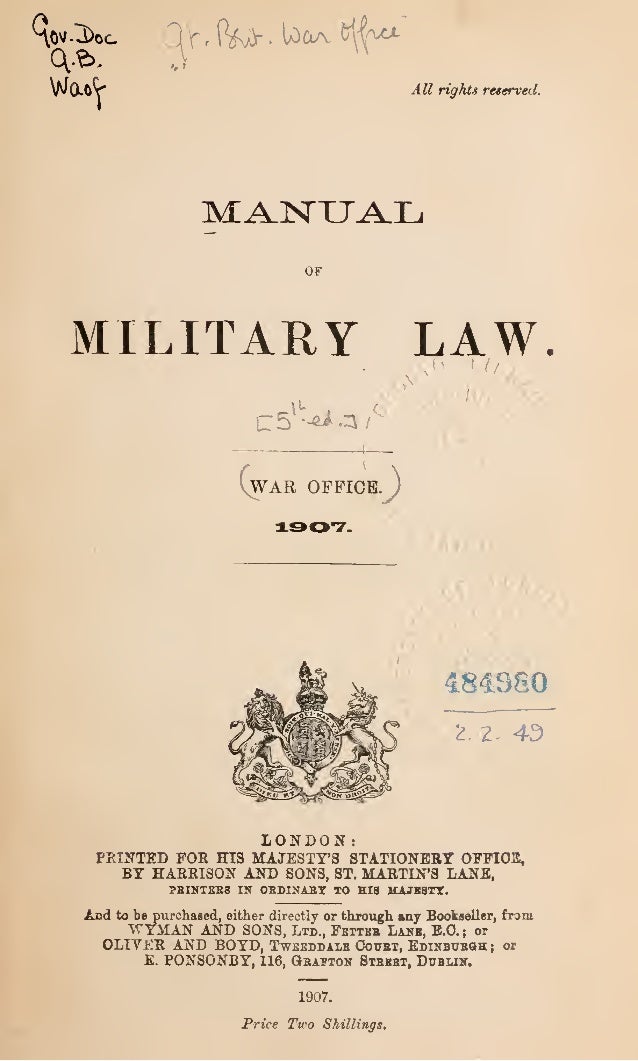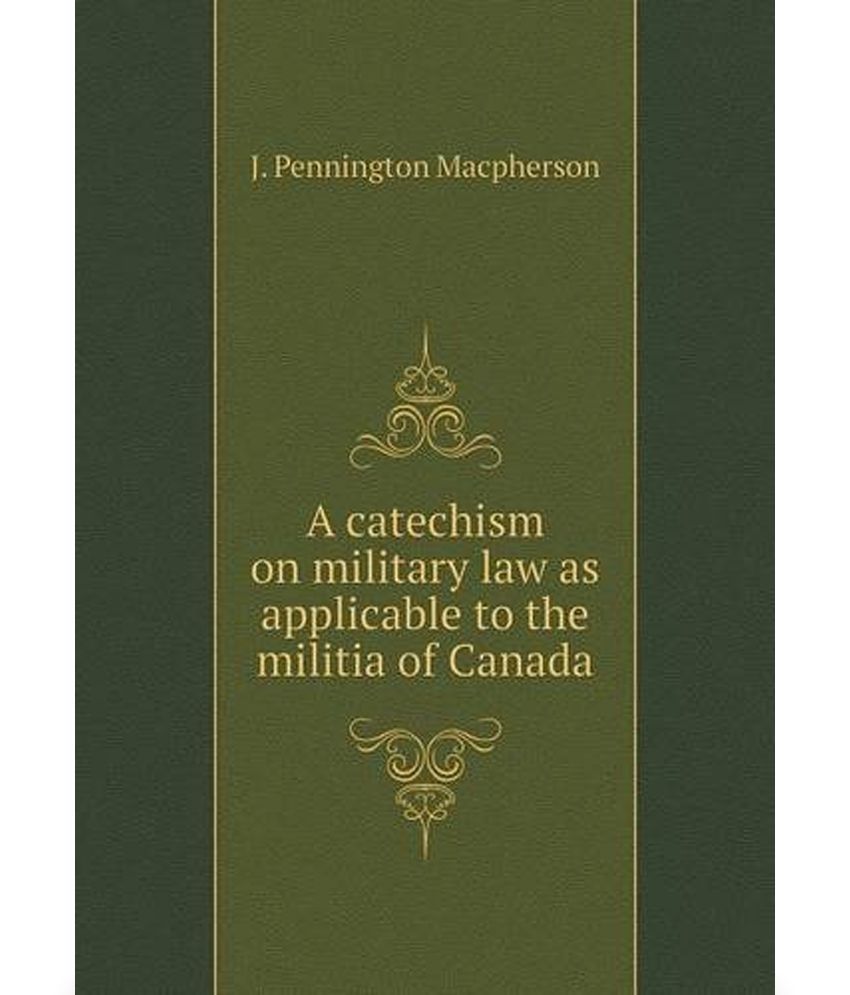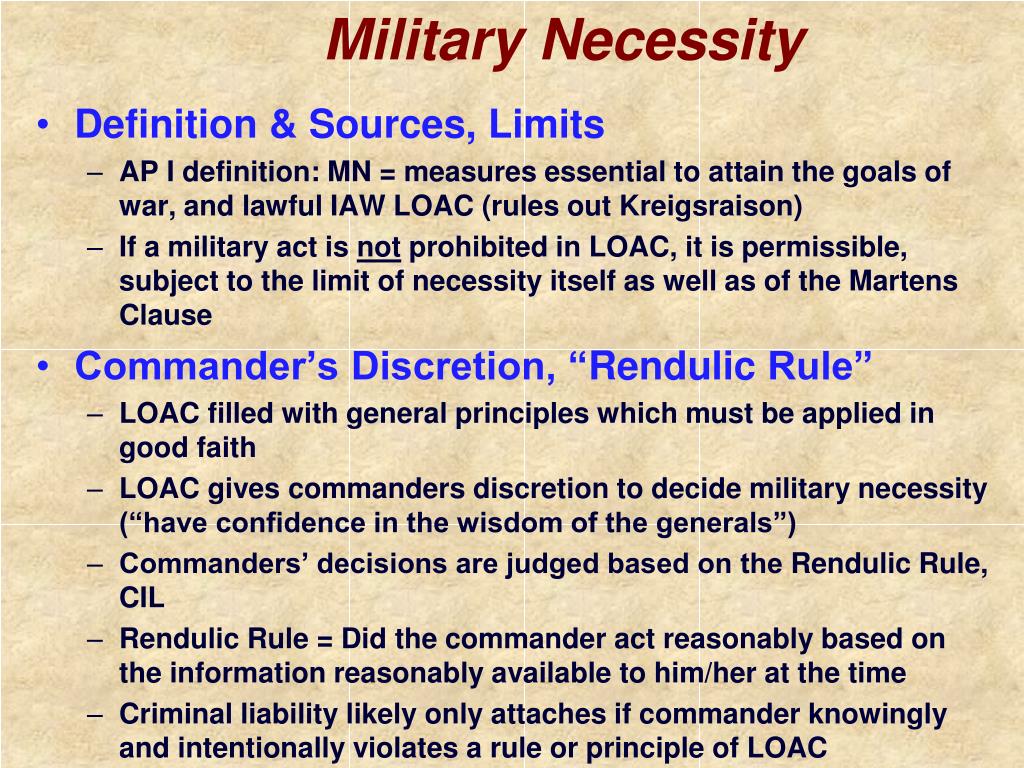Military Law Definition - Two laws that were enacted as a result of previous actions are the Sedition Law and the Posse Comitatus Law. Both are now widely used in emergencies, although their constitutionality is being questioned more than 100 years after their establishment.
The Sedition Act defined the times when federal troops could be used in the country, while the Posse Comitatus Act restricted their use under such circumstances. Soldiers returning from a tour of duty must return to civilian life and the transition can be a bit difficult.
Military Law Definition
 Source: image.slidesharecdn.com
Source: image.slidesharecdn.com
Fortunately, there are many laws to help. First, the Workers' Compensation Act helps soldiers save their lives while they're away by protecting them from credit card debt, mortgage payments, and pending probation. After all, the Uniformed Services and Employees' Rights Act (USERRA) helps service members reintegrate into society by requiring employers to rehire service members in some situations after returning from service.
Examples Of Martial Law In The Us
Martial law was first declared in the United States in New Orleans by General Andrew Jackson during the War of 1812, although the decision was not popular with the public and other parts of the government.
A judge fined Jackson $1,000 for arresting a journalist who wrote a story critical of the measure, though he later used his influence after leaving office to persuade Congress to pass special legislation to refund him.
The right of the federal government to wage war is limited to all matters and activities affecting its operations and development. The warring parties have adopted all measures of national security, including the collection and use of all natural resources and the protection of military equipment.
Most of these countries have not been used since World War II, as the United States did not declare war when it engaged in conflicts in Korea, Vietnam, and the Persian Gulf. Special Military Courts A special military court consists of a military judge and at least three armed members.
War Powers Of The Us Government
However, pursuant to Article 16(2) of the UCMJ (10 U.S.C.A. § 816(2), members may sit without a judge or the accused may choose to be tried by a judge alone). Normally, active military personnel can only perform domestic duties related to national security.
This includes things like counter-terrorism, drug prevention or dealing with weapons of mass destruction. If a situation arises that requires military personnel to work in law enforcement, the president must give permission in writing or, in an emergency, the local military commander.
 Source: cdn.britannica.com
Source: cdn.britannica.com
In the past, some legal analysts have argued that military personnel enjoy a lower level of constitutional protection than civilians. However, United States v. Stuckey, 10 M.J. 347 (1981), the Court of Appeals for the Armed Forces (now the US Court of Appeals for the Armed Forces) declared that "the statute applies to all men and women in the military service. . . ."
does not prohibit Subsequent leaders did not take military action. For example, in 1990, without seeking congressional approval, President George H. w. Bush sent troops to Saudi Arabia to respond to Iraq's invasion of Kuwait. In 2002, with war against Iraq looming, President George W. Bush introduced a resolution that would have allowed him to declare war any time he wanted without consulting Congress.
What Can The Military Do During Martial Law?
Congress approved this authority in 2002, and President Bush declared war on Iraq in March 2003. In the early months of America's entry into World War II, President Franklin d. Roosevelt ordered the deportation of people of Japanese descent from the West Coast.
At the time, the move was a matter of national security, as military commanders believed California was vulnerable to Japanese spies and saboteurs. The United States Supreme Court in korematsu v. United States, 323 U.S. 214, 65 S. Ct.
193, 89 L.Ed. 194 (1944), affirmed the removal. Thousands of Japanese Americans lost their property and businesses and were “deported” to concentration camps for the duration of the war. Members of the armed forces do not cease to exist in the modern environment to have the role of citizen and human being.
Therefore, all systems of military law must strive to ensure that a soldier cannot be exempted from the obligations of his own national law or international law, as agreed upon in various meetings. While the executive branch can often rely on the military to assist civilian security forces, Congress and the judiciary often oppose such activities and, depending on the situation, act to prevent them.
Offenses Against Military Law
Example: See Rasul v. Bush. The United States Supreme Court upheld the legality of standing forces in Ex Parte Milligan, 71 U.S. (4 Wall.) 2, 18 L. Ed. 281 (1866). He said the Constitution empowers Parliament to make laws and regulations to punish any soldier who commits a crime, anywhere in time of war or peace.
In addition, the court confirmed the constitutionality of martial law in situations where common law is not sufficient to ensure public safety and privacy. The position of military judge is authorized by the Military Justice Act of 1968 (UCMJ art. 26, 10 U.S.C.A. § 826).
 Source: n1.sdlcdn.com
Source: n1.sdlcdn.com
The role of a military judge is similar to that of a civilian judge. Military judges do not make decisions and can only give instructions to members of the court acting as judges about what the court can decide during the trial, unless the accused chooses to have the judge as judge and jury.
the jury. This dual role is permitted in non-capital cases. In all cases, the judge will decide all legal issues. Although it has been argued in some legal debates, martial law can also be implemented in stages, without the full authority of the military.
Rights Of Service Members
Under current U.S. law, the president, Congress, or local military commanders may establish military degrees under certain circumstances. The draft, also known as the draft, is the process by which people are recruited into the military.
The draft was the primary means of filling military positions from World War I to World War II, the Korean War, and the Vietnam War. Although many cases have challenged the constitutionality of conscription, the US Supreme Court has maintained that Congress's authority to conscription is "beyond question."
(See United States v. O'Brien, 391 U.S. 367, 88 S. Ct. 1673, 20 L. Ed. 2d 672 [1968]). or if submission would cause undue hardship to the winner or their family. The bill was repealed in 1972.
Two agencies review military releases: the Electronic Discharge Review Board and the Military Information Reform Commission. Service members may also seek judicial review of discharge, but courts typically require that administrative remedies have been exhausted before they can grant discharge review authority.
Martial Law In The Us Today
(See Seepe v. Department of the Navy, 518 F.2d 760 [6th Cir. 1975] and Woodrick v. Hungerford, 800 F.2d 1413 [5th Cir. 1986], cert. denied, 481 U.S. 1036, 107 Ct. 1972 . exceed two-thirds of monthly pay; suspension of pay for up to six months or reduction in rank ((UCMJ art. 19, 10 U.S.C.A. § 819). The officer appealed his conviction to the Court of Criminal Appeals, and the USCAAF subsequently sought an injunction against the President and the Army. The Air Force removed the officer from the Air Force roster.
Although the CCA refused, citing lack of jurisdiction, the USCAAF issued the order. The US Supreme Court did not, according to Judge David H. South, ruling that the USCAAF does not have this type of enforcement authority. The court held
 Source: thumbs.dreamstime.com
Source: thumbs.dreamstime.com
the USCAAF's authority is limited to reviewing decisions of military courts and decisions of the Court of Criminal Appeals. In some countries, only civilians attached to the military can be tried under the Service Act. In Israel, for example, civilians hired by the military or those given weapons to the military are subject to martial law because they are detained by the military.
Under British military law, civilians accompanying soldiers overseas (including military families and British civilians serving or on duty) can be convicted of offenses contrary to army orders. In the US, however, civilians—even those in the Foreign Service Corps—cannot be tried at all under the military system during peacetime, although they may be subject to military jurisdiction during wartime.
Practice Area Notes
Austria and Spain are among the countries where no civilian can be punished by military punishment. All content on this website, including dictionaries, thesaurus, literature, geography and other reference information, is for informational purposes only. This information should not be considered complete, informal and is not intended to be a substitute for consultation, advice or legal, medical or other professional advice.
Most attorneys who practice law derived from the UCMJ belong to the Judge Advocate General (JAG) corps. Every branch of the military has a JAG Corps. Members of the JAG Corps represent the military in a number of different capacities, including personally in courts-martial and representing the military as a whole in civilian courts.
Martial law is the entire legal system that governs the military. Issues addressed in the military include the conduct of service members during training or on duty, the protection of military spouses, and reintegration into society at the end of a tour.
According to the order: "To protect the United States and its citizens, and to conduct effective military operations and prevent terrorist attacks, it is necessary that persons subject to this order ... be apprehended and tried for attempting to violate the laws of war and other laws of military courts."
Definition Of Military Law
The order authorizes the Minister of Defense to issue regulations establishing military commissions to hear crimes related to the order. These rules must ensure a fair trial and establish the rules of procedures and evidence. "employees who have served in the military for five years or less with certain exceptions. The Act also protects insurance, pension, and fringe benefits. The Veterans' Choice Act (1944) (5 U.S.C.A. §§ 2108 and 3309-3320) provides employment opportunities and increases job security to certain veterans and survivors
. CCA review is mandatory and automatic in cases where the penalty is death, dismissal, dishonorable or moral discharge, or imprisonment of one year or more, and the right to appeal is not waived, or if your appeal was not withdrawn. . CCA judges can be officers or civilians, but all must
 Source: encyclopediavirginia.org
Source: encyclopediavirginia.org
be members of a federal or state supreme court. Judges are selected by the chief judge advocate of the appropriate branch of the service. CCA judges do not have fixed or fixed terms. They serve at the discretion of the trial attorney. CCA decisions are subject to the United States Court of Appeals for the Military. Critics have noted that the use of military courts has significant constitutional implications.
Some constitutional or guses may not apply in a military court as they do in a regular court system. While a normal court requires a unanimous vote to reach a decision, a court-martial, which makes all legal and factual decisions, must accept a two-thirds majority.
Military Criminal Justice System
Military court trials are also not mandatory in public, and the right to appeal is limited. The court-martial does not make a decision until the president or the secretary of defense approves it. The Department of Defense issued the rules on March 21, 2002. Many of the provisions of the rules are similar to those used in civilian courts.
These statutes provide that the accused must be provided with an attorney for his defense or may choose his own attorney. The accused is presumed innocent until proven guilty and the prosecution must prove the case beyond a reasonable doubt.
The rules also guarantee the right to double damages and self-defamation. The Military Justice Act of 1968 (10 U.S.C.A. § 866) established the CMR to review court-martial decisions. They typically have a three-member panel that reviews all cases where the sentence exceeds one year in prison, involves firing an authorized officer, or imposing a sentence on the victim.
registration (UCMJ art. 66, 10 U.S.C.A. § 866). Courts of criminal appeals can review findings of fact and law and can reduce the sentence, dismiss the charges, or order a new trial. martial law, the temporary rule of an area imposed by military authorities during an emergency when civil authorities are unable to act.
Examples Of Non-Martial Law Troop Use In The Us
The legal consequences of declaring martial law vary from jurisdiction to jurisdiction, but generally include the suspension of ordinary civil rights and the extension of the application of martial law or summary martial law to civilians.
Although theoretically temporary, martial law conditions can last indefinitely. The military justice system is the primary law enforcement tool of the armed forces. It is similar to, but different from, the civil criminal justice system. The Military Constitution, first adopted in 1950, is the constitution that governs the military.
 Source: image1.slideserve.com
Source: image1.slideserve.com
Courts-martial interpret and enforce it. The constitution of the military court has in many cases been adopted on the principle that the military has become a society in its own right that needs a criminal justice system.
The Supreme Court of the United States continues to transfer the military, as Congress has given it, to the management of its members. In Solorio v. United States, 483 U.S. 435, 107 S. Ct. 2924, 97 L.Ed.
What Is Martial Law?
2d 364 (1987), the Court held that "Congress bears the primary responsibility for the difficult task of balancing the rights of employees with the needs of the military. As here, the constitutional rights of service members are at stake."
" In addition to promoting discipline, order, consistency, efficiency, and obedience, the UCMJ addresses certain crimes specific to the military, such as desertion, insubordination, or absence without leave. Finally, the military needs a unified system that can be administered at the scene of a crime to adjudicate crimes committed outside the U.S.
jurisdictional military personnel. While the U.S. is taking military action in Afghanistan, those suspected of being members of the Taliban regime and al-Qaeda are being held at American military bases and may face court-martial. Supporters of the plan point out that military courts are necessary because the U.S. is at war with terrorists and
enemies generally do not protect the U.S. Constitution during times of war. Additionally, supporters note that leaders often used courts-martial during some of the worst wars in the country's history. These leaders include George Washington during the Revolutionary War; Abraham Lincoln during the Civil War; and Franklin Delano Roosevelt during World War II. The last five
Mobilizing The National Guard For Martial Law
to enter the military service is to enlist as an officer. The appointment of officials is regulated by the Constitution (Article II, Clause 2, Clause 2). Officers are appointed to a post in a particular branch of the service.
In many examples of martial law, such as when President George W. Bush placed foreign prisoners in Guantanamo Bay prison in Cuba outside of US court, which was later overturned by the Supreme Court, or a loophole in the law he gave.
US President Donald Trump controls the entire DC military. The National Guard, which was deployed to the area on January 6, 2021 during a Capitol Hill protest, and the courts typically respond quickly and forcefully to any domestic military deployments.
Because martial law avoids the constitutional separation of powers and gives more emergency powers to the executive branch, such cases are inconsistent with other branches of government.
Persons Subject To Military Law
are we under military law, military law vs civil law, what is military law, us military laws, list of military laws, code of military law, military law programs, military law and order
0 Comments